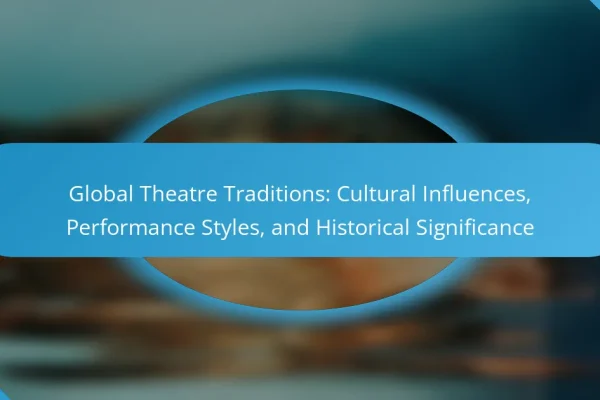
Global Theatre Traditions: Cultural Influences, Performance Styles, and Historical Significance
Global theatre traditions represent a wide array of performance styles and cultural practices from various regions around the world. This article examines key traditions, including Greek tragedy, Indian Kathakali, and Japanese Noh, each reflecting distinct cultural and historical contexts. Greek theatre originated from ancient religious festivals, while Indian theatre integrates dance and music to narrate…


